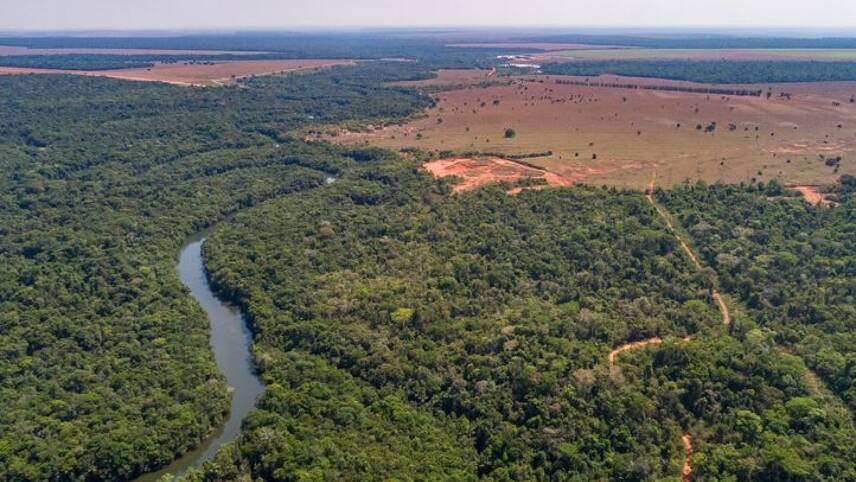Register for free and continue reading
Join our growing army of changemakers and get unlimited access to our premium content

Global demand for soy is expected to increase 4% annually
The organisations account for around 60% of the UK’s soy consumption and have moved to strengthen the aims of the UK Soy Manifesto, which was launched in November 2021.
The new commitments, unveiled on Thursday (17 November), cover the soy supply chain. Members have committed to producing a quarterly soy deforestation risk register for UK imports and agreeing to publish a “transition plan” to ensure the risks and challenges of moving to deforestation-free soy are shared across the value chain.
Commenting on the announcement, David Edwards, director of food strategy at WWF, said: “Around the world nature is in freefall, and unsustainable agriculture is driving its catastrophic decline. To protect precious natural habitats like the Cerrado in Brazil, we must urgently ensure soy imported to the UK is not driving the destruction of nature overseas.
“Today’s announcement – the product of collective action across the supply chain, including retailers, traders and suppliers – has the potential to drive the long overdue actions the soy sector so urgently requires. But, to ensure it delivers for nature and climate, we urgently need to see an explicit roadmap for implementation to meet the 2025 ambition – including measurable milestones to track progress, and a clear focus on bringing the rest of the sector on board.”
All of the UK’s major supermarkets, as well as the likes of Danone, Nestle, Nando’s, KFC UK&I and McDonald’s UK&I, signed the joint commitment to eliminate soy that has resulted in deforestation or land degradation from their animal feed and product supply chains, back in November 2021.
Included in the Manifesto is an overarching commitment to set “robust” deforestation-free and land-use-conversion-free commitments immediately, so that none of the soy they source can be linked to land clearance undertaken after January 2020. This commitment should be placed into contracts with direct suppliers as soon as possible, with additional financial and educational support to be provided to support suppliers to meet the requirement. Direct suppliers should be asked to set the same requirements for their suppliers. The end results should be deforestation and destruction-free supply chains by 2025 at the latest.
Signatory members are now calling for greater financial incentives to be introduced across global markets to help boost sustainable soy production. The likes of Tesco, Sainsbury’s and Waitrose have already invested $11m in the Responsible Commodities Facility (RCF), a new system of financial incentives for farmers in Brazil who commit to deforestation- and conversion-free (DCF) soy cultivation.
The Cerrado which once covered a quarter of Brazil, loses an area the size of London every two months as global demand for products including cocoa, palm oil and soy increases, according to WWF and RSPB.
This has devastating consequences for local biodiversity and reduces the ability of the soil to provide carbon sequestration. In time, these trends will decrease farmers’ ability to grow.


Please login or Register to leave a comment.